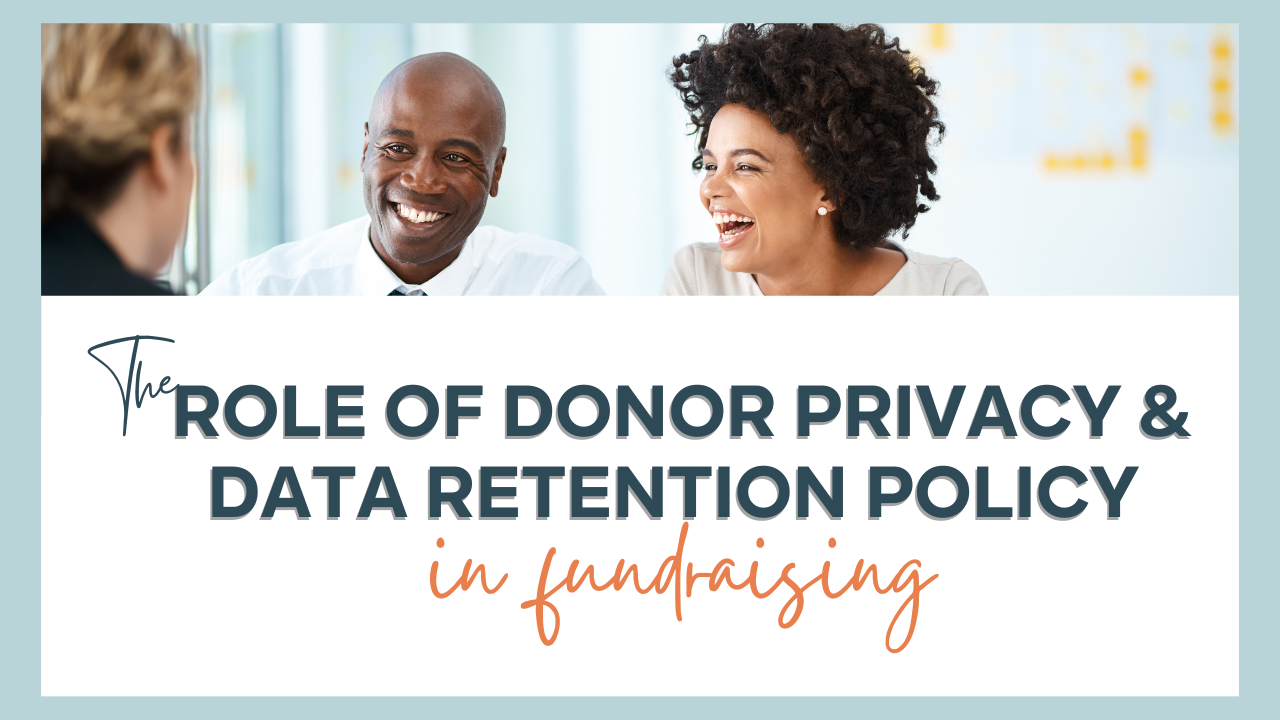The Role of Donor Privacy and Data Retention Policy in Fundraising
Jul 07, 2023
Philanthropy hinges on the relationship of trust built between nonprofits and their donors. Maintaining this relationship is paramount for sustained fundraising and donor engagement. A key aspect of this trust is ensuring donor privacy, a concern that is increasingly becoming significant in the digital era. Nonprofits, particularly those utilizing powerful database systems like Raiser’s Edge™, need to be extra cautious about protecting donor information while optimizing their use.
What Is Donor Privacy?
Donor privacy is the act of safeguarding the personal and financial information of the donors shared with nonprofits. It includes all the information housed within a fundraising department, like donor information, giving history, wealth screening information, and notes from personal meetings.
Why Is Donor Privacy Important?
Donor privacy not only aids in maintaining donors' trust but also aligns your nonprofit with the legal and ethical responsibilities of data protection. Here are three reasons why donor privacy should be the top priority for your nonprofit organization:
-
Preserving Trust: Donors entrust their sensitive information to your nonprofit. They expect you to respect and protect their privacy. Failing to do so can tarnish your organization's reputation, causing irreversible damage.
-
Legal Compliance: With numerous data protection laws in effect worldwide, such as the GDPR in Europe and the CCPA in California, nonprofits must ensure they are compliant to avoid legal repercussions.
-
Preventing Data Breaches: Ensuring donor privacy can also prevent catastrophic data breaches, which can be costly and damaging to your organization's reputation.
Implementing a Donor Privacy Policy
The first step towards ensuring donor privacy is by implementing a clear, comprehensive privacy policy. This policy should detail what information is collected, how it's used, who it's shared with, and how long it's retained. It should also provide donors with an avenue to opt-out of data sharing, in compliance with regulations like GDPR.
Effective Data Retention
Alongside a robust privacy policy, nonprofits must also focus on implementing an efficient data retention policy. Data retention refers to the policies governing how long an organization will hold onto specific types of information.
Implementing a data retention policy can help your nonprofit:
-
Reduce Data Storage Costs: By routinely cleaning up outdated or unnecessary information, your nonprofit can save on storage costs.
-
Improve Database Performance: Less clutter means your database software, such as Raiser’s Edge™, can perform more efficiently.
-
Mitigate Legal Risks: Storing data longer than necessary can increase the risks of a data breach and subsequent legal issues.
Designing a data retention policy can be challenging, but it’s vital for ensuring your nonprofit's long-term success. It's crucial to consider the type of data, the purpose of its collection, and any legal obligations when setting retention periods.
In conclusion, donor privacy and data retention policies are integral to preserving your nonprofit's reputation, legal standing, and operational efficiency. By prioritizing these aspects, your organization can not only ensure a healthy relationship with its donors but also secure a strong foundation for future success.
As you move forward with your Raiser’s Edge™ database, remember that privacy is not just about protecting data, it's about protecting people. At Databasey, we’re here to help you make the most of your fundraising database, while ensuring you uphold the highest standards of donor privacy and data retention.
Stay tuned to our blog for more tips on using your Raiser’s Edge™ database effectively while maintaining robust donor privacy.


